2019 Toyota Camry Tires, Repair & Service
Get Started
Complete Auto Care for Your 2019 Toyota Camry
-
TIRES FOR YOUR 2019 Toyota Camry View Tire Info GET TIRE PRICING
-
REPAIR FOR YOUR 2019 Toyota Camry View Repair Info SCHEDULE REPAIR
-
MAINTENANCE FOR YOUR 2019 Toyota Camry View Maintenance Info SCHEDULE MAINTENANCE
-
OFFERS FOR YOUR 2019 Toyota Camry Limited Time Tire Offers VIEW ALL COUPONS
2019 Toyota Camry Tires
Recommended Tires | Tire Information
2019 Toyota Camry Tires Sizes, Speed Ratings, and Inflation
Not sure about your 2019 Toyota Camry tire size? Use the following chart to find information on tire size, speed rating, and inflation.
| Trim Level | Speed Rating | Inflation in PSI F/R | Tire Size |
|---|---|---|---|
| 2019 Toyota Camry XSE* | V | 35 PSI/35 PSI | 235/40R19 |
| 2019 Toyota Camry XSE* | V | 35 PSI/35 PSI | 235/40R19 |
| 2019 Toyota Camry XSE* | V | 35 PSI/35 PSI | 235/40R19 |
| 2019 Toyota Camry XSE* | V | 35 PSI/35 PSI | 235/40R19 |
| 2019 Toyota Camry XSE* | V | 35 PSI/35 PSI | 235/40R19 |
| 2019 Toyota Camry XSE* | V | 35 PSI/35 PSI | 235/40R19 |
| 2019 Toyota Camry Hybrid LE* | H | 35 PSI/35 PSI | 205/65R16 |
| 2019 Toyota Camry Hybrid LE* | H | 35 PSI/35 PSI | 205/65R16 |
| 2019 Toyota Camry Hybrid LE* | H | 35 PSI/35 PSI | 205/65R16 |
| 2019 Toyota Camry Hybrid LE* | H | 35 PSI/35 PSI | 205/65R16 |
| 2019 Toyota Camry Hybrid LE* | H | 35 PSI/35 PSI | 205/65R16 |
| 2019 Toyota Camry Hybrid LE* | H | 35 PSI/35 PSI | 205/65R16 |
| 2019 Toyota Camry SE* | V | 35 PSI/35 PSI | 235/45R18 |
| 2019 Toyota Camry SE* | V | 35 PSI/35 PSI | 235/45R18 |
| 2019 Toyota Camry SE* | V | 35 PSI/35 PSI | 235/45R18 |
| 2019 Toyota Camry SE* | V | 35 PSI/35 PSI | 235/45R18 |
| 2019 Toyota Camry SE* | V | 35 PSI/35 PSI | 235/45R18 |
| 2019 Toyota Camry SE* | V | 35 PSI/35 PSI | 235/45R18 |
| 2019 Toyota Camry Hybrid XLE* | V | 35 PSI/35 PSI | 235/45R18 |
| 2019 Toyota Camry Hybrid XLE* | V | 35 PSI/35 PSI | 235/45R18 |
| 2019 Toyota Camry Hybrid XLE* | V | 35 PSI/35 PSI | 235/45R18 |
| 2019 Toyota Camry Hybrid XLE* | V | 35 PSI/35 PSI | 235/45R18 |
| 2019 Toyota Camry Hybrid XLE* | V | 35 PSI/35 PSI | 235/45R18 |
| 2019 Toyota Camry Hybrid XLE* | V | 35 PSI/35 PSI | 235/45R18 |
| 2019 Toyota Camry XLE* | V | 35 PSI/35 PSI | 235/45R18 |
| 2019 Toyota Camry XLE* | V | 35 PSI/35 PSI | 235/45R18 |
| 2019 Toyota Camry XLE* | V | 35 PSI/35 PSI | 235/45R18 |
| 2019 Toyota Camry XLE* | V | 35 PSI/35 PSI | 235/45R18 |
| 2019 Toyota Camry XLE* | V | 35 PSI/35 PSI | 235/45R18 |
| 2019 Toyota Camry XLE* | V | 35 PSI/35 PSI | 235/45R18 |
| 2019 Toyota Camry LE* | V | 35 PSI/35 PSI | 215/55R17 |
| 2019 Toyota Camry LE* | V | 35 PSI/35 PSI | 215/55R17 |
| 2019 Toyota Camry LE* | V | 35 PSI/35 PSI | 215/55R17 |
| 2019 Toyota Camry LE* | V | 35 PSI/35 PSI | 215/55R17 |
| 2019 Toyota Camry LE* | V | 35 PSI/35 PSI | 215/55R17 |
| 2019 Toyota Camry LE* | V | 35 PSI/35 PSI | 215/55R17 |
| 2019 Toyota Camry L* | H | 35 PSI/35 PSI | 205/65R16 |
| 2019 Toyota Camry L* | H | 35 PSI/35 PSI | 205/65R16 |
| 2019 Toyota Camry L* | H | 35 PSI/35 PSI | 205/65R16 |
| 2019 Toyota Camry L* | H | 35 PSI/35 PSI | 205/65R16 |
| 2019 Toyota Camry L* | H | 35 PSI/35 PSI | 205/65R16 |
| 2019 Toyota Camry L* | H | 35 PSI/35 PSI | 205/65R16 |
| 2019 Toyota Camry Hybrid SE* | V | 35 PSI/35 PSI | 235/45R18 |
| 2019 Toyota Camry Hybrid SE* | V | 35 PSI/35 PSI | 235/45R18 |
| 2019 Toyota Camry Hybrid SE* | V | 35 PSI/35 PSI | 235/45R18 |
| 2019 Toyota Camry Hybrid SE* | V | 35 PSI/35 PSI | 235/45R18 |
| 2019 Toyota Camry Hybrid SE* | V | 35 PSI/35 PSI | 235/45R18 |
| 2019 Toyota Camry Hybrid SE* | V | 35 PSI/35 PSI | 235/45R18 |
|
2019 Toyota Camry XSE* Speed Rating: V Inflation F/R: 35 PSI/35 PSI |
|
2019 Toyota Camry XSE* Speed Rating: V Inflation F/R: 35 PSI/35 PSI |
|
2019 Toyota Camry XSE* Speed Rating: V Inflation F/R: 35 PSI/35 PSI |
|
2019 Toyota Camry XSE* Speed Rating: V Inflation F/R: 35 PSI/35 PSI |
|
2019 Toyota Camry XSE* Speed Rating: V Inflation F/R: 35 PSI/35 PSI |
|
2019 Toyota Camry XSE* Speed Rating: V Inflation F/R: 35 PSI/35 PSI |
|
2019 Toyota Camry Hybrid LE* Speed Rating: H Inflation F/R: 35 PSI/35 PSI |
|
2019 Toyota Camry Hybrid LE* Speed Rating: H Inflation F/R: 35 PSI/35 PSI |
|
2019 Toyota Camry Hybrid LE* Speed Rating: H Inflation F/R: 35 PSI/35 PSI |
|
2019 Toyota Camry Hybrid LE* Speed Rating: H Inflation F/R: 35 PSI/35 PSI |
|
2019 Toyota Camry Hybrid LE* Speed Rating: H Inflation F/R: 35 PSI/35 PSI |
|
2019 Toyota Camry Hybrid LE* Speed Rating: H Inflation F/R: 35 PSI/35 PSI |
|
2019 Toyota Camry SE* Speed Rating: V Inflation F/R: 35 PSI/35 PSI |
|
2019 Toyota Camry SE* Speed Rating: V Inflation F/R: 35 PSI/35 PSI |
|
2019 Toyota Camry SE* Speed Rating: V Inflation F/R: 35 PSI/35 PSI |
|
2019 Toyota Camry SE* Speed Rating: V Inflation F/R: 35 PSI/35 PSI |
|
2019 Toyota Camry SE* Speed Rating: V Inflation F/R: 35 PSI/35 PSI |
|
2019 Toyota Camry SE* Speed Rating: V Inflation F/R: 35 PSI/35 PSI |
|
2019 Toyota Camry Hybrid XLE* Speed Rating: V Inflation F/R: 35 PSI/35 PSI |
|
2019 Toyota Camry Hybrid XLE* Speed Rating: V Inflation F/R: 35 PSI/35 PSI |
|
2019 Toyota Camry Hybrid XLE* Speed Rating: V Inflation F/R: 35 PSI/35 PSI |
|
2019 Toyota Camry Hybrid XLE* Speed Rating: V Inflation F/R: 35 PSI/35 PSI |
|
2019 Toyota Camry Hybrid XLE* Speed Rating: V Inflation F/R: 35 PSI/35 PSI |
|
2019 Toyota Camry Hybrid XLE* Speed Rating: V Inflation F/R: 35 PSI/35 PSI |
|
2019 Toyota Camry XLE* Speed Rating: V Inflation F/R: 35 PSI/35 PSI |
|
2019 Toyota Camry XLE* Speed Rating: V Inflation F/R: 35 PSI/35 PSI |
|
2019 Toyota Camry XLE* Speed Rating: V Inflation F/R: 35 PSI/35 PSI |
|
2019 Toyota Camry XLE* Speed Rating: V Inflation F/R: 35 PSI/35 PSI |
|
2019 Toyota Camry XLE* Speed Rating: V Inflation F/R: 35 PSI/35 PSI |
|
2019 Toyota Camry XLE* Speed Rating: V Inflation F/R: 35 PSI/35 PSI |
|
2019 Toyota Camry LE* Speed Rating: V Inflation F/R: 35 PSI/35 PSI |
|
2019 Toyota Camry LE* Speed Rating: V Inflation F/R: 35 PSI/35 PSI |
|
2019 Toyota Camry LE* Speed Rating: V Inflation F/R: 35 PSI/35 PSI |
|
2019 Toyota Camry LE* Speed Rating: V Inflation F/R: 35 PSI/35 PSI |
|
2019 Toyota Camry LE* Speed Rating: V Inflation F/R: 35 PSI/35 PSI |
|
2019 Toyota Camry LE* Speed Rating: V Inflation F/R: 35 PSI/35 PSI |
|
2019 Toyota Camry L* Speed Rating: H Inflation F/R: 35 PSI/35 PSI |
|
2019 Toyota Camry L* Speed Rating: H Inflation F/R: 35 PSI/35 PSI |
|
2019 Toyota Camry L* Speed Rating: H Inflation F/R: 35 PSI/35 PSI |
|
2019 Toyota Camry L* Speed Rating: H Inflation F/R: 35 PSI/35 PSI |
|
2019 Toyota Camry L* Speed Rating: H Inflation F/R: 35 PSI/35 PSI |
|
2019 Toyota Camry L* Speed Rating: H Inflation F/R: 35 PSI/35 PSI |
|
2019 Toyota Camry Hybrid SE* Speed Rating: V Inflation F/R: 35 PSI/35 PSI |
|
2019 Toyota Camry Hybrid SE* Speed Rating: V Inflation F/R: 35 PSI/35 PSI |
|
2019 Toyota Camry Hybrid SE* Speed Rating: V Inflation F/R: 35 PSI/35 PSI |
|
2019 Toyota Camry Hybrid SE* Speed Rating: V Inflation F/R: 35 PSI/35 PSI |
|
2019 Toyota Camry Hybrid SE* Speed Rating: V Inflation F/R: 35 PSI/35 PSI |
|
2019 Toyota Camry Hybrid SE* Speed Rating: V Inflation F/R: 35 PSI/35 PSI |
* Note: these models have different tire sizes depending on vehicle options.
Recommended Tires for Your 2019 Toyota Camry
What tires are best for a 2019 Toyota Camry? Check out the following tire brands and types.
 Ecopia EP422 Plus
Ecopia EP422 Plus
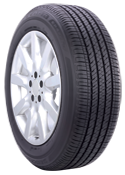
- Platinum Pact Limited Warranty
- All-Season
- Performance
 Potenza RE97AS
Potenza RE97AS
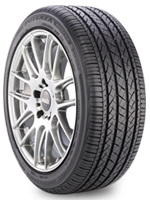
- Platinum Pact Limited Warranty
- All-Season
- Performance
 Potenza Sport
Potenza Sport
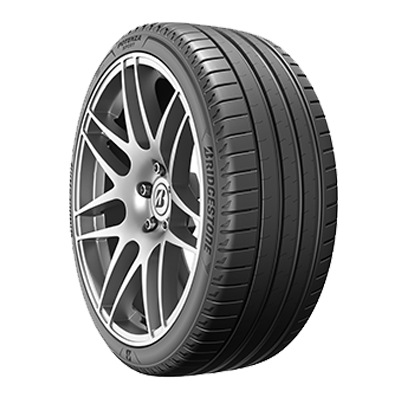
- Platinum Pact Limited Warranty
- Summer
- Performance
 Blizzak LM005
Blizzak LM005
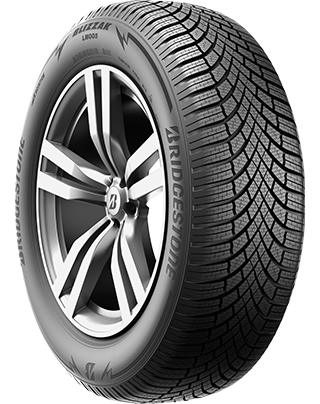
- Platinum Pact Limited Warranty
- Winter
- Winter
 Potenza Sport AS
Potenza Sport AS
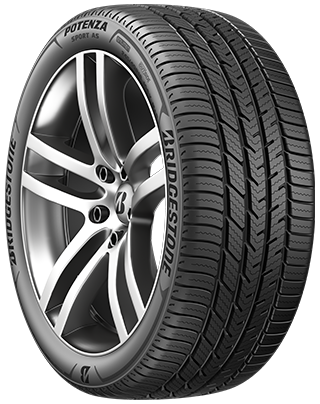
- Platinum Pact Limited Warranty
- All-Season
- Performance
 Turanza EL440
Turanza EL440
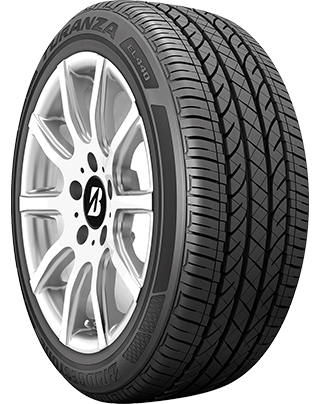
- No warranty
- All-Season
- Performance
 Potenza RE050A
Potenza RE050A
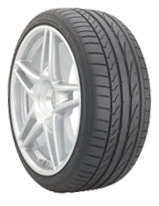
- Platinum Pact Limited Warranty
- Summer
- Performance
 Turanza ER33
Turanza ER33
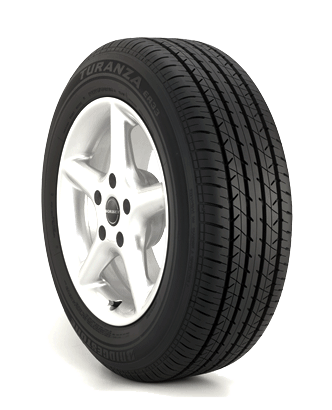
- Platinum Pact Limited Warranty
- Summer
- Performance
 Turanza QUIETTRACK
Turanza QUIETTRACK
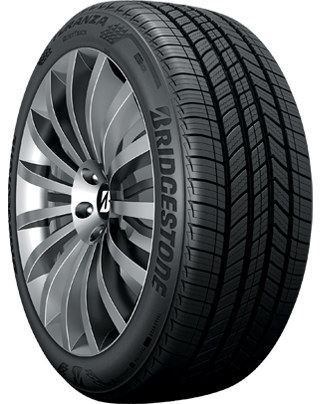
- No warranty
- All-Season
- Performance
 Potenza S001
Potenza S001
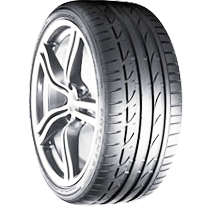
- Platinum Pact Limited Warranty
- Summer
- Performance
 Turanza T005A
Turanza T005A
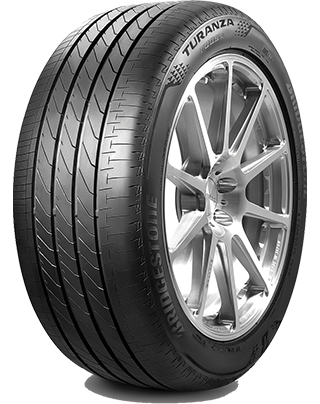
- No warranty
- Summer
- Performance
 Blizzak WS90
Blizzak WS90
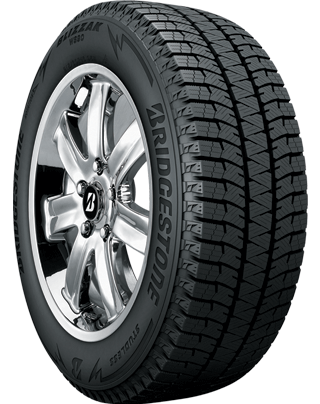
- No warranty
- Winter
- Winter
 DriveGuard Plus
DriveGuard Plus
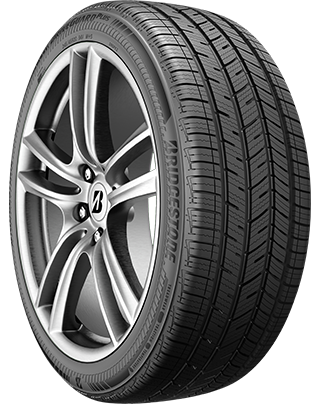
- Platinum Pact Limited Warranty
- All-Season
- Performance
 WEATHERPEAK
WEATHERPEAK
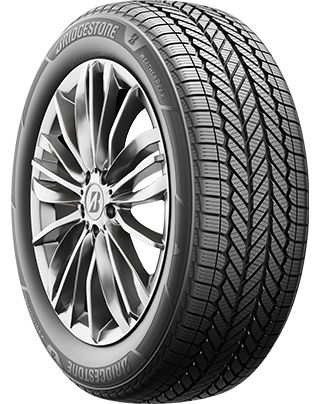
- Platinum Pact Limited Warranty
- All-Season
- Passenger Tires
 Turanza EL400-02
Turanza EL400-02
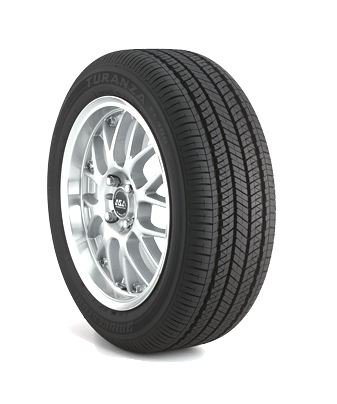
- No warranty
- All-Season
- Performance
 Turanza T005
Turanza T005
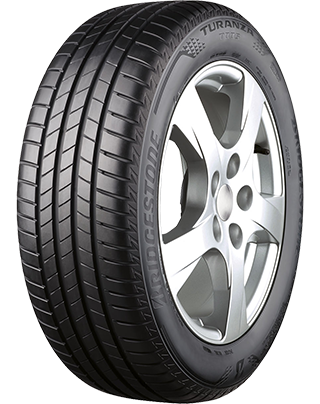
- No warranty
- Summer
- Performance
 Turanza EV
Turanza EV
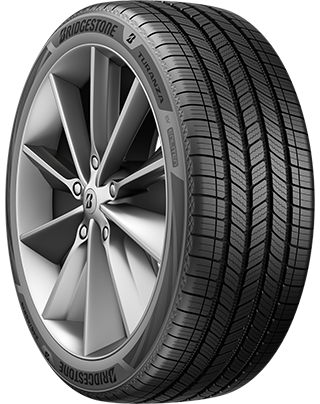
- Platinum Pact Limited Warranty
- All-Season
- Performance
 Turanza LS100
Turanza LS100
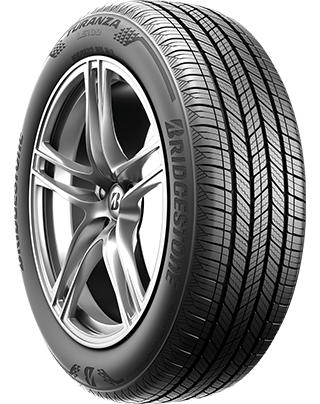
- Platinum Pact Limited Warranty
- All-Season
- Performance
 ALL SEASON
ALL SEASON

- No warranty
- All-Season
- Passenger Tires
 Firehawk AS V2
Firehawk AS V2
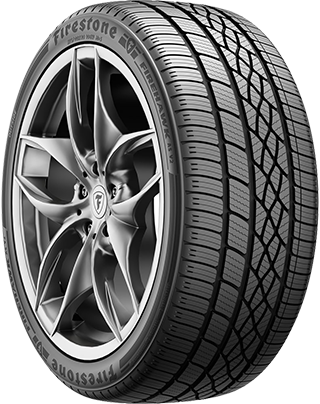
- No warranty
- All-Season
- Performance
 Affinity Touring S4 FF
Affinity Touring S4 FF
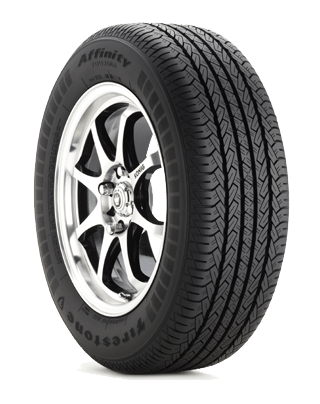
- Gold Pledge Limited Warranty
- All-Season
- Passenger Tires
 Firehawk Indy 500
Firehawk Indy 500
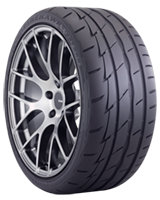
- Gold Pledge Limited Warranty
- Summer
- Performance
 WEATHERGRIP
WEATHERGRIP
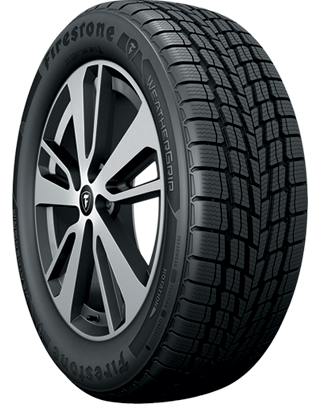
- No warranty
- All-Season
- Passenger Tires
 FT140
FT140
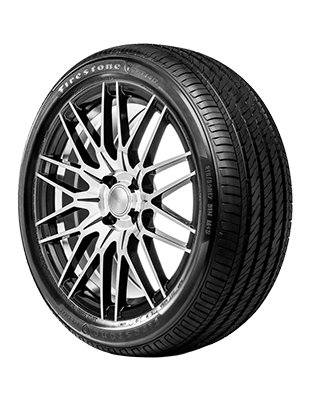
- No warranty
- All-Season
- Passenger Tires
 Winterforce 2
Winterforce 2
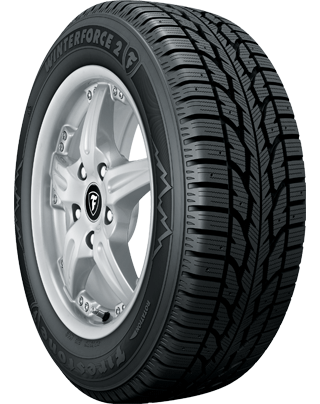
- No warranty
- Winter
- Winter

- No warranty
- All-Season
- Performance

- No warranty
- All-Season
- Passenger Tires

- No warranty
- All-Season
- Passenger Tires
 Extensa A/S II
Extensa A/S II

- No warranty
- All-Season
- Passenger Tires
 PROXES Sport
PROXES Sport
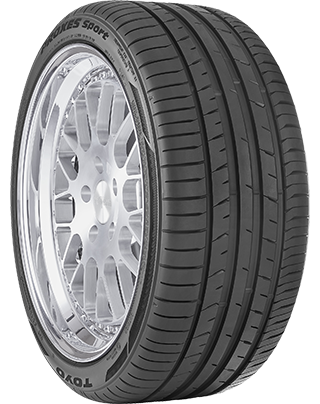
- No warranty
- Summer
- Performance
 PROXES Sport A/S
PROXES Sport A/S
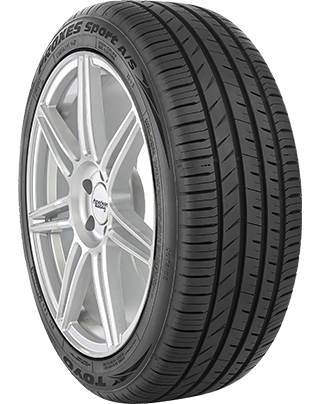
- No warranty
- All-Season
- Performance
Choosing 2019 Toyota Camry Tires
Beyond the correct tire size, there are a couple of other factors to consider when buying Toyota Camry tires like which tire brands you like most and where you drive. Think about where you live (countryside vs. city vs. mountains) and the kind of unexpected weather you're likely to experience when evaluating your driving conditions. Many drivers who live in states that experience all four seasons choose to purchase two sets of tires: one for winter and one for summer. Other drivers prefer to purchase one all-season set to limit trips to the tire shop and make sure their vehicle is prepared in the rain, sleet, snow, or sun!
Driving style is next on the list to think about when buying tires. If you're a diehard off-roader, you have very different tire needs than a highway commuter who doesn't leave the paved path. Talk to a tire technician at Firestone Complete Auto Care for help choosing the best tire for you, or start shopping for Toyota Camry tires online.
Toyota Camry Installation and More
Firestone Complete Auto Care has been a leading tire provider for more than a century. We're your tire shop and a complete service center for tire installation, maintenance, repair, rotation, and alignment! We make it easy to buy new 2019 Toyota Camry tires online and book an installation appointment at the same time.
2019 Toyota Camry Tire Q&A
-
Why check Toyota tire inflation? Even a tiny decrease in tire pressure could impact your safety and fuel economy. Maintaining proper tire pressure can help increase fuel economy, improve braking time, and boost tire lifespan.
-
What do the tire sidewall numbers mean for my Toyota Camry? Your tire sidewall gives you information about load carrying capacity, speed rating, treadwear, traction, and tire size. Talk to one of our tire technicians to learn how to read the numbers on your tire!
-
Can I check the tread depth on my Toyota tires at home? Stay on top of your tire tread depth to help avoid a dangerous drive. You can check tread depth with a penny. Hold the penny so that Abraham Lincoln is facing you, then place your penny into a tread groove upside down. If you can see the top of Abe’s head, your tread is shallow and it might be time for new Toyota Camry tires. Grab a penny. Hold the so that Abe Lincon's head is facing you and his hair is pointing toward the ground. Then, place the penny into a tread groove. If you can see the top of Abe’s head, your tread is shallow and it might be time for new Toyota Camry tires.
Repair Services for Your 2019 Toyota Camry
Want more details? Choose a service below to read more about Toyota Camry repairs at Firestone Complete Auto Care.
Get Repairs for Your 2019 Toyota Camry
Car repairs: for many drivers, that phrase is a dreadful one. We’re here to change that, though. At Firestone Complete Auto Care, we want to make car repair painless and hassle-free. Bring your 2019 Toyota Camry in for repair services and our technicians will take care of your Camry like it was their own. Before we begin any repair work, we’ll diagnose any issues and answer your questions about potential repair options. If a repair isn't necessary, we won't recommend it.
How Much Are Toyota Camry Repairs?
Several factors can affect the cost to repair your 2019 Toyota Camry, including the type of repair, the cost of any replacement parts, the labor involved, and the state you live in. And check back often — we update our deals regularly!
A few different aspects can influence repair costs for your 2019 Toyota Camry, like
2019 Toyota Camry Auto Repair Q&A
-
Do I need to follow Toyota's maintenance schedule? Don’t neglect scheduled maintenance. Sure, you could skip out on a few recommended maintenance services, but you may pay the price later. Bring your vehicle to Firestone Complete Auto Care at recommended service intervals to address minor issues before they get out of hand and keep your car running newer, longer.
-
Should I bring my Toyota in even if I can't pinpoint the problem? You know your vehicle. You also know when something feels 'off' with your vehicle. Pay attention when things don't run like they used to and stop by for a Courtesy Check when you notice an unusual sign, smell, or sensation. We might be able to help you prevent Toyota Camry repairs!
-
Do I have to get the repairs you recommend for my Toyota? We won’t recommend a service or repair for your 2019 Toyota Camry unless we think it’s necessary to keep you safe. Want to know more about a specific recommended repair? Ask! We’re here to help.
Get Your 2019 Toyota Camry Brakes Fixed
Your Toyota Camry engine may be strong and reliable. But if you can't stop it, then it's scrap metal. If you notice your brakes are squeaking or not working well, don’t wait! Safe driving and responsive brakes go hand in hand. Plus, waiting can lead to more expensive parts wearing out and requiring replacement. Visit Firestone Complete Auto Care for the right brake repair for your 2019 Toyota Camry. We offer a variety of brake services like brake pad/shoe removal and replacement, brake rotor/drum refinishing, brake fluid exchange/bleeding, and wheel cylinder and brake caliper installation.
Toyota Camry Brakes Frequently Asked Questions
-
What is causing my Camry to shake when I brake? Feeling shaking or vibrating in your Camry as you brake might indicate a few different problems, including worn brake pads or rotors, loose suspension components, damaged brake calipers, or warped rotors. Book an appointment for a free brake inspection as soon as you notice a problem with your brakes.
-
How often do I need to replace my Camry brake pads? Brake pads generally last between 30,000 and 40,000 miles. Your driving can affect how long your Camry brake pads last, though. For example, mainly driving on highways and gradually braking can help increase the lifespan of your brake pads, and carrying hefty loads or riding your brakes can shorten it.
-
Can brake fluid leak when my Camry is off? Your Camry has a closed hydraulic brake system, meaning you should not have a brake fluid leak under normal conditions. However, parts of your brake system can wear out over time or become damaged, which can lead to a brake fluid leak.
Repairing Your Toyota Camry Drivetrain
Drivetrains for front, rear, and all-wheel-drive and 4WD vehicles are quite different, so you don't want to go to just anyone for drivetrain repair. You want to visit Firestone Complete Auto Care. We can fix many 2019 Toyota Camry drivetrain components Your Toyota Camry may need driveshaft attention if you feel vibration as your vehicle accelerates, clunks when shifting, heavy vibrations in your floorboards, or resistance when turning.
2019 Toyota Camry Drivetrain Q&A
-
What are the symptoms of a damaged Toyota drivetrain system? Your Toyota Camry drivetrain might be damaged if you notice strange noises from the rear of your vehicle, see fluid leaking, or have issues turning.
-
What causes a Camry’s malfunction indicator light (MIL) to illuminate? Engine problems, transmission problems, faulty sensors, electrical issues, misfire issues, and connector problems could all cause your Camry’s malfunction warning light, or better known as the check engine light, to illuminate.
-
How serious is a drivetrain malfunction in my Camry? Don't ignore a drivetrain malfunction in your Camry. As soon as you notice a problem, have it checked by a professional mechanic to diagnose the issue and carry out any necessary repairs. Driving with a faulty drivetrain is risky and may further damage your Camry.
2019 Toyota Camry Alignment Services
An alignment involves making adjustments to your Toyota Camry's suspension system, the connection between the vehicle and the wheels. In an alignment service, the individual angles of your tires are adjusted so that they come into contact with the road in just the right way — the way Toyota intended them to. Before we adjust the alignment of your 2019 Toyota Camry, we’ll start by checking the current alignment angles. If needed, we'll adjust your wheel alignment angles to match Toyota recommendations.
Toyota Camry Alignment Questions
-
How can I avoid knocking my Toyota Camry out of alignment? Hitting a pothole or curb can alter your wheel alignment. So can general wear and tear over time.
-
When should you get a wheel alignment for your Camry? Check your Camry owner's manual for Toyota's recommended interval. It's generally a good idea to check your alignment every 6,000 miles or 6 months, depending on which comes first.
-
Does getting new Camry tires mean you need an alignment? While you don’t necessarily need to get an alignment when putting new tires on your Camry, it’s still a good idea. Ensuring your wheels are properly aligned can help support optimal handling, tire wear, and fuel efficiency.
Engine Repairs for Your 2019 Toyota Camry
If your 2019 Toyota Camry needs engine repair, our technicians will provide you with a thorough explanation beforehand. We don't start working until we have your approval. If a service can wait, we’ll make sure you know. If it's necessary for your safety, we'll make sure you understand that, too. We seek to give you all the info you need to make a smart decision about our services. Choose Firestone Complete Auto Care for Toyota Camry engine repairs and you can feel confident knowing that we use Toyota-approved parts and components like the serpentine belt, motor oil seal, sensors, or other parts.
Questions About 2019 Toyota Camry Engines
-
Why does the check engine light in my Camry turn on when I start my car? Generally, your check engine light turning on upon ignition is not a bad thing. It’s just your Camry firing up its circuits. The light should turn off in a bit, but come see us if it doesn't.
-
Why is my Toyota Camry making engine noise? Strange engine sounds can be a sign something’s off in your Toyota Camry. Knocking or tapping could be a symptom of low oil. A high-pitched whistle could signal an intake leak or misaligned belt. Squealing can be traced back to a loose fan belt, and grinding might be a sign of brake problems rather than engine issues.
-
Are you unknowingly damaging your Toyota Camry engine? Some driving habits are not so great for your engine. These include driving on a near-empty gas tank, flooring the gas pedal while the car is in Park, or accelerating too quickly, too soon. Protect your engine’s performance and efficiency by distancing yourself from these habits.
Get Your Toyota Camry Tire Repaired
If your 2019 Toyota Camry is in need of a tire inspection or possible flat tire repair, Firestone Complete Auto Care has your back. Our tire technicians can determine whether it's safe to plug and patch the tire, or whether it needs to be replaced. We’ll begin by taking a look at where the damage is, the type and extent of the tire damage, and how all of your tires are wearing.
If your 2019 Toyota Camry tire puncture can be repaired, we'll follow three basic steps to repair it: (1) Separate the tire from the vehicle wheel, (2) use a filler to close up the puncture (this is to keep moisture from getting in), and (3) secure and seal the inner tire liner to ensure the tire is airtight.
Frequently Asked Toyota Camry Tire Repair Questions
-
Can I drive my Toyota on a flat tire? Driving on a flat or underinflated tire can put extra stress on your wheels and alignment. While it’s sometimes necessary to drive a short distance on a flat tire to get to a safe place, don’t take any other trips in your Camry until you can have the flat tire repaired or replaced.
-
Can I use an emergency/temporary sealant to fix my Toyota's flat tire? Temporary sealants will solve your problem… for a little bit. If you’ve seen temporary or emergency tire sealant before (it usually comes in a can), it can be tempting to turn to this as a solution for your flat tire. Keep in mind that these fixes could buy you some time to get to Firestone Complete Auto Care for a proper repair, but they could also cause some harm in the process (for example, damage to your TPMS). Plus, using a product like this could void your tire warranty.
-
What can cause Camry tires to keep losing air? Tire punctures, damaged wheels, and leaking valve stems are possible reasons for your Camry tires continuously losing air.
2019 Toyota Camry Maintenance
You want your Toyota Camry to last as long as possible. If you put in the effort to keep up with proper maintenance, you could hit 200,000 miles (or beyond!) in your Camry.
2019 Toyota Camry Maintenance Schedule
What is the manufacturer recommended maintenance schedule for a 2019 Toyota Camry? Find maintenance info for your vehicle.
Guide to 2019 Toyota Camry Scheduled Maintenance
Instead of waiting for an issue to arise with your Camry, you can stay ahead of problems before they even begin. Rely on the recommended maintenance schedule that’s been created just for your 2019 Toyota Camry! The recommended maintenance schedule is put together by Toyota, your vehicle manufacturer. Scheduled maintenance services can vary depending on driving conditions, climate, and other factors; however, there’s a good chance that your vehicle’s recommended maintenance services will include fluid exchanges, filter changes, new brake pads, oil changes, and tire rotations. Keeping up with routine service appointments is a great way to keep your Camry running for longer, keep you safer on the road, and maybe even save you the headache of dealing with common 2019 Toyota Camry problems in the future.
Essential Maintenance to Keep Your 2019 Toyota Camry Running Newer, Longer
Head to your nearest Firestone Complete Auto Care in your 2019 Toyota Camry for factory-recommended routine maintenance and a skilled technician will start the appointment with a Courtesy Check. A Courtesy Check helps "set the stage" for your service and catch any small problems before they turn into big repairs. Every Courtesy Check will include a visual inspection of your Camry. We’ll check your head and tail lights, fluid levels, filters, tires (and their alignment!), and windshield wiper blades. We’ll also perform a free battery check to determine your battery’s charge level.
Firestone Complete Auto Care is your one-stop shop for 2019 Toyota Camry maintenance and repairs. So visit us regularly, or visit us urgently. Many locations are open on weekends and in the evening.
2019 Toyota Camry Maintenance Q&A
-
What do I do if I hit a pothole in my Toyota Camry? You know your Toyota Camry better than anyone else, so you’ll know if something doesn’t feel right while driving. Have your alignment checked (and adjusted if necessary) as soon as you notice a pulling steering wheel to prevent suspension damage or uneven tire wear.
-
When does my Toyota Camry need high mileage oil? Do you have more than 75,000 miles on your Toyota Camry? If so, request to switch to high mileage oil at your next oil change. This type of oil is specially formulated to keep aging engine parts in the best possible condition.
-
Can Toyota dashboard warning lights wait? Don't ignore dashboard warning lights! Bring your Toyota Camry in for a diagnostic code scan as soon as a dashboard warning light flashes on, whether it's your check engine or battery light. Dashboard lights alert you to trouble under the hood.
The Right Battery Size for a 2019 Toyota Camry
Not sure what battery to get for your Toyota Camry?
| Battery | Engine | Warranty | Cold Cranking Amps | |
|---|---|---|---|---|
| 91-1 | V6/3.5L | Replacement 24 months | Performance months | 615 |
| 91-1 | V6/3.5L | Replacement 24 months | Performance months | 615 |
| 47H5 | V6/3.5L | Replacement 36 months | Performance months | 650 |
| 47H5 | V6/3.5L | Replacement 36 months | Performance months | 650 |
| H5-AGM | V6/3.5L | Replacement 36 months | Performance months | 680 |
| H5-AGM | V6/3.5L | Replacement 36 months | Performance months | 680 |
| 91-1 | L4/2.5L | Replacement 24 months | Performance months | 615 |
| 91-1 | L4/2.5L | Replacement 24 months | Performance months | 615 |
| 48H6 | L4/2.5L | Replacement 36 months | Performance months | 730 |
| 48H6 | L4/2.5L | Replacement 36 months | Performance months | 730 |
| H6-AGM | L4/2.5L | Replacement 36 months | Performance months | 760 |
| H6-AGM | L4/2.5L | Replacement 36 months | Performance months | 760 |
| 91-1 | L4/2.5L | Replacement 24 months | Performance months | 615 |
| 91-1 | L4/2.5L | Replacement 24 months | Performance months | 615 |
| 48H6 | L4/2.5L | Replacement 36 months | Performance months | 730 |
| 48H6 | L4/2.5L | Replacement 36 months | Performance months | 730 |
| H6-AGM | L4/2.5L | Replacement 36 months | Performance months | 760 |
| H6-AGM | L4/2.5L | Replacement 36 months | Performance months | 760 |
| 91-1 | V6/3.5L | Replacement 24 months | Performance months | 615 |
| 91-1 | V6/3.5L | Replacement 24 months | Performance months | 615 |
| 47H5 | V6/3.5L | Replacement 36 months | Performance months | 650 |
| 47H5 | V6/3.5L | Replacement 36 months | Performance months | 650 |
| H5-AGM | V6/3.5L | Replacement 36 months | Performance months | 680 |
| H5-AGM | V6/3.5L | Replacement 36 months | Performance months | 680 |
| 91-1 | V6/3.5L | Replacement 24 months | Performance months | 615 |
| 91-1 | V6/3.5L | Replacement 24 months | Performance months | 615 |
| 47H5 | V6/3.5L | Replacement 36 months | Performance months | 650 |
| 47H5 | V6/3.5L | Replacement 36 months | Performance months | 650 |
| H5-AGM | V6/3.5L | Replacement 36 months | Performance months | 680 |
| H5-AGM | V6/3.5L | Replacement 36 months | Performance months | 680 |
| 91-1 | L4/2.5L | Replacement 24 months | Performance months | 615 |
| 91-1 | L4/2.5L | Replacement 24 months | Performance months | 615 |
| 48H6 | L4/2.5L | Replacement 36 months | Performance months | 730 |
| 48H6 | L4/2.5L | Replacement 36 months | Performance months | 730 |
| H6-AGM | L4/2.5L | Replacement 36 months | Performance months | 760 |
| H6-AGM | L4/2.5L | Replacement 36 months | Performance months | 760 |
2019 Toyota Camry Batteries
Generally, car batteries last from three to five years. You want to replace your 2019 Toyota Camry battery before it fails and leaves you stranded. Pay attention to clues that your battery is on its way out. A slow engine crank, an illuminated battery or check engine light, swollen battery case, corrosion-covered posts, or weak lights may all indicate that your battery is waving goodbye.
Or, you can get a complimentary battery check at your nearest Firestone Complete Auto Care. Stop by for a free battery test and, if necessary, a battery replacement to help keep your 2019 Toyota Camry running! Car batteries are only one of our many strong suits. Our technicians are familiar with Toyota-specific recommendations for Camry battery cold cranking amps and reserve capacity. Get help choosing the battery size that fits your car perfectly, and schedule a fast car battery replacement at your earliest convenience.
Top Toyota CamryCar Battery Questions
-
Why won't my Toyota Camry battery stay charged? A car battery that needs to be jump-started every time is as good as dead. It may be getting old. Or, you’ve been leaving the doors slightly open and the dome lights on during the night. Stop in for a free battery check at your nearest Firestone Complete Auto Care and learn more about your battery's charge.
-
How long do car batteries last? A car battery normally lasts three to five years, but this number can vary based on battery type, your driving habits, and battery maintenance.
-
Why is there white, crusty buildup on my Camry’s battery post? The white, crusty stuff that can accumulate around Camry car battery terminals is called corrosion. It is caused by a chemical reaction between the battery acid and the air, which creates a white, powdery substance that can build up on the terminals over time. Corrosion can interfere with the flow of electricity between the battery post and the car's electrical system, sometimes leading to poor electrical performance, difficulty starting, and even premature battery failure.
Oil Changes for 2019 Toyota Camry
Toyota recommends having your 2019 Toyota Camry’s motor oil changed at regular intervals. No matter the mileage, your Camry may need its oil changed ASAP if your check engine light is on, you hear knocking sounds coming from the engine, smell oil inside the vehicle, or see an excess amount of vehicle exhaust. You may also need an oil change more frequently than Toyota recommends if you haul heavy loads, drive in dusty areas, go off-roading a lot, or go long distances at low speeds.
Whether it’s synthetic, conventional, or a blend of both — your local Firestone Complete Auto Care has the right oil for your Toyota Camry. Check your owner's manual and talk with a technician to select the right Toyota Camry oil, whether it's Quaker State® Advanced Durability™ conventional oil, Pennzoil® High Mileage Vehicle® motor oil, Pennzoil Platinum® Full Synthetic motor oil with PurePlus™ Technology, or Shell Rotella® heavy-duty engine oil. In an oil change service, one of our techs will change your Camry’s oil, replace and recycle your used oil and filter, inspect the rest of your car’s filters, top-off important fluids, and perform a free inspection on the rest of your vehicle. Let the experts take care of your Camry’s engine by making an oil change appointment today.
2019 Toyota Camry Oil Change Q&A
-
What can cause the oil light on my Toyota Camry to illuminate? The oil change light in your Toyota Camry could be triggered by an overdue oil change. However, if the oil pressure light is on, you may be dealing with low engine oil, a failing oil pump, a clogged oil filter, or a malfunctioning oil pressure sensor.
-
Can I change my Toyota Camry oil at home? Changing engine oil at home isn’t as simple as it’s made out to be. You’ll have to figure out how to properly dispose of the oil and buy special tools. Having your oil changed professionally can not only reduce the risk of something going wrong during the service, but it’ll also help your car perform smoothly down the road.
-
Why is my Toyota exhaust smoke gray or blue? There could be an oil leak and your engine is burning oil. Time to have a qualified technician check things out. The leak could be caused by several issues like leaking valve seals, damaged piston rings, or worn cylinder walls.
Engine Tune-Up Service for Your 2019 Toyota Camry
Regular engine tune-ups can optimize your Camry’s power on the road. Your local Firestone Complete Auto Care offers a range of engine tune-up services for your 2019 Toyota Camry. The standard Firestone Tune-Up is one service option. It includes a complete visual inspection of engine components, installation of new spark plugs, and a lifetime warranty on parts*. Another service option pays special attention to the filters in your Camry. Specifically, we replace the fuel filter and air filter. The third tune-up option is a fuel system cleaning service, which is a three-step process that removes varnish, dirt, and carbon deposits on your Camry's fuel injectors, throttle body, and throttle plate. The result? Restored fuel system performance. Here’s something to remember when choosing services: the mileage and service history of your Camry can determine what kind of service it needs. Ask one of our technicians what your vehicle needs, based on your driving habits and your car’s current condition.
*Ask a Firestone Complete Auto Care teammate about full terms and conditions for warranties.
2019 Toyota Camry Engine Tune-Up Q&A
-
What happens if my Toyota Camry spark plugs fail? Replace spark plugs on time or about every 30,000 miles or so. Spark plugs are small but mighty. The spark of electricity that the plug emits across a small gap creates the ignition for the combustion needed to start your car. Without that spark, your car won't start.
-
What does a puddle underneath my Toyota Camry mean? Puddles could indicate an oil leak, coolant leak, or brake fluid leak– all of which can critically hurt your engine. Have your engine inspected as soon as you spot a pool of liquid in your usual parking spot.
-
How often do Toyota Camry fuel injectors need to be cleaned? The cleaning schedule for vehicle fuel injectors varies depending on your driving conditions and the type of fuel you use. Some manufacturers suggest cleaning your fuel system as part of routine maintenance, while others will recommend it on an as-needed basis if you’re experiencing poor performance. Reference your Toyota owner’s manual for exact guidelines.
2019 Toyota Camry Suspension Service & Repair
During the first few years you had your 2019 Toyota Camry, you probably enjoyed a smooth and steady ride. But these days, things are starting to feel a bit rough. Maybe your Camry bounces, drifts to one side, or makes noise whenever you turn or drive over a speed bump. As soon as you notice that something’s “off” with your 2019 Toyota Camry, bring it in for steering and suspension services. We'll get to the root of the problem and, if steering and suspension service is needed, we’ll explain what your car needs and how much it’ll cost to get it done. We won't begin any work without your permission.
2019 Camry Steering & Suspension Q&A
-
Why is my Toyota Camry bouncing excessively? If it feels like you’re on a trampoline every time your Camry goes over a bump or dip, you may have a problem with your struts or shocks. Faulty shocks and struts can’t properly absorb road bumps, leading to a bouncy ride.
-
Why does my Camry front end dip forward when I brake? The forward dip in the front end of your Camry when you brake is caused by the weight and momentum transferring to the front wheels. If your suspension system is in bad shape, it can fail to distribute this force, leading your front end to dip further downward.
-
Does tire pressure and tread depth impact my Toyota's suspension? Keeping your tires properly inflated can help reduce strain on the suspension, and also help you notice when you need new tires. A tire that doesn't have an adequate amount of tread can't grip the road or function as well as the manufacturer intended.
2019 Toyota Camry A/C Service Near You
Our trained technicians will do what they can to solve your 2019 Toyota Camry A/C problems. During this initial A/C performance check, we’ll look at the state of your 2019 Toyota Camry’s A/C system to determine whether repair work is needed. We’ll test overall system performance, check for any leaks, and measure the system pressure.
Let's say we repair your 2019 Toyota Camry A/C system. We will also perform an A/C evacuation and recharge. To start this process, a technician will flush out the old refrigerant from your vehicle’s A/C system. Next, they will evacuate the system according to Toyota's recommendations. To finish, we’ll add new refrigerant to recharge the A/C system.
Frequently Asked Questions for 2019 Toyota Camry A/C Systems
-
Why do I get hot air from my Camry A/C? If your car’s air conditioning isn’t blowing cold air at all (or it tries, then turns warm), you could have a clogged expansion valve, a faulty compressor clutch, a leak, or a malfunctioning fuse in the system.
-
How does my A/C system get a leak? Over the years, the rubber seals and gaskets in your Camry’s A/C system naturally degrade. Moisture can get into the system and cause a malfunction, or parts can simply wear out so that your system no longer seals properly.
-
What is causing my Camry’s A/C to only work when the car is in motion? There could be issues with one or more components in the air conditioning or electrical system. Your Camry may have a faulty cooling fan or low refrigerant.
Transmission Services for 2019 Toyota Camry
The transmission delivers power from the engine to the wheels so that you can drive on your terms. Since the transmission has to translate the precise amount of power for your desired amount of speed, even the smallest transmission problems should be addressed right away. Toyota Camry transmission problems can present themselves as shifting delays, grinding when accelerating, the car shaking at any speed, or a burning smell or whistling sounds coming from under the hood. Let Toyota Camry transmission problems linger and you might notice your fuel economy decrease or find that you can't drive your Camry at all. Our expert techs are familiar with 2019 Camry services and perform them according to Toyota-recommended specifications. If you think there’s something wrong with your Camry’s transmission, schedule an appointment at your local Firestone Complete Auto Care to help keep your Toyota running for miles and miles.
2019 Toyota Camry Transmission Questions & Answers
-
When should I have my Camry's transmission fluid checked or exchanged? Regularly checking and exchanging your 2019 Camry’s transmission fluid is one of the best ways to help the transmission system perform. Some technicians would say that between 30,000 and 60,000 miles is a good timeframe for having your Toyota's transmission fluid checked and replaced, but that timeline can vary depending on how your vehicle is used and your manufacturer’s recommendations. The good news is that transmission fluid leaks are affordable to repair and easy to spot.
-
Can Toyota Camry transmission fluid leak? Yes. Toyota Camry transmission fluid can leak as time passes, which may lead to transmission problems. Transmission fluid leaks are often caused by worn or damaged transmission components, such as the transmission pan, cooler lines, seals, or housing. An overfilled transmission may also be behind your transmission fluid leak.
-
Can I still drive my Toyota Camry if it has a transmission fluid leak? You should avoid driving with a transmission fluid leak. Your transmission system relies on transmission fluid to operate properly, and a leak may decrease performance, cause your Camry to overheat, or even lead to transmission failure.
2019 Toyota Camry Inspections
At Firestone Complete Auto Care, we perform a multi-point Courtesy Check during any vehicle service. The technician will begin by testing your Toyota Camry's battery to see how much charge it has left – and determine if it may fail in the near future. The check will continue with a visual inspection of your Toyota Camry's lights, windshield wipers, filters, hoses, alignment, tires, fluid levels, and belts.
While every visit to your local Firestone Complete Auto Care includes a Courtesy Check, you can also request a Complete Vehicle Inspection for your 2019 Toyota Camry if you suspect there may be a bigger problem. In addition to a visual check of everything that's included in a Courtesy Check, a Complete Vehicle Inspection also includes a hands-on examination of your exhaust system, steering and suspension, and brakes. This inspection is aimed at informing you of any major problems that could need immediate attention in order to prevent further damage.
Depending on where you live, you may be able to take care of your state inspection or safety test at your local Firestone Complete Auto Care. Inspections are performed on a state-by-state basis and requirements vary.
FAQs for 2019 Toyota Camry Vehicle Inspections
-
How do I know if I should have an inspection on my Toyota Camry? If you’ve noticed something that doesn’t feel quite right in your car lately, a Courtesy Check could give you peace of mind. We can help you get to the bottom of strange engine noises, a jerky steering wheel, or an engine that's hard to start.
-
Can you fix my 2019 Toyota Camry so it will pass a state inspection test? There's a good chance we can. Stop by for a full system inspection and we'll get to the root of the issue.
-
When is the best time to get a complete vehicle inspection for my Toyota Camry? The best time to get a complete vehicle inspection for your Toyota Camry is before going on a road trip for the peace of mind. Another great time is when something abnormal occurs, and you can't pinpoint the issue. You might notice new dashboard lights, hear strange noises from under the hood, or your steering wheel doesn't feel like it once did.
Radiator Service & Repair for 2019 Toyota Camry
Staying on top of routine radiator maintenance for your 2019 Toyota Camry is crucial to keep your engine in the best possible shape for years to come. Toyota recommends that you replace coolant (also called antifreeze) at certain intervals, but it’s a good idea to keep your eyes open for any indication that your radiator is failing. Your radiator could be close to causing an engine breakdown if you notice leaking coolant, overheating, or an illuminated low coolant dashboard light.
When you come to Firestone Complete Auto Care, we’ll begin your radiator repair with an in-depth inspection of the cooling system in your Toyota Camry. We’ll do a machine-powered coolant exchange on the system, and then we’ll top off or replace the fluids that were removed (like chemicals, lubricants, and sealants). Lastly, we’ll perform a pressure check to look for leaks. When it comes to radiator service and repair, we’re here to give your 2019 Toyota Camry the top-notch service it needs.
Common Toyota Camry Radiator Questions
-
Why is the coolant light on my Toyota dashboard on? f the coolant light illuminates on your dashboard, your engine could be overheating. Pull over to a safe area and wait for the engine to cool down. Then, head to your nearest Firestone Complete Auto Care for a coolant system check.
-
My Camry overheated! What can cause that? If your Toyota Camry engine overheats, it could be because of a clogged radiator, a damaged thermostat, a faulty cooling fan, a malfunctioning water pump, or low coolant levels.
-
Why does the radiator in my Camry sound like it’s rumbling or boiling? If your radiator sounds like it's boiling or rumbling, you could have air pockets in the cooling system of your Camry. You might also have a damaged radiator cap (super easy to fix!) or a clogged radiator.